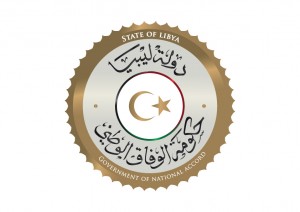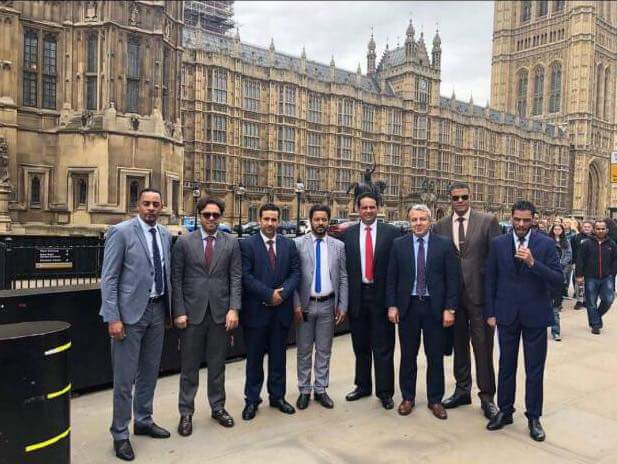By Sami Zaptia.
London, 26 April 2018:
The Faiez Serraj-led Presidency Council passed a decree (No. 505) yesterday authorizing the import of essential foodstuffs to the value of US$ 450 million.
The decree has formed a committee to implement its ruling to import 13 items through Cash-Against -Document (CAD) facilities. These are flour, rice, vegetable oil, sterilized milk, concentrated milk, cheese, eggs, juices, frozen chicken, frozen lamb (meat), frozen beef, livestock (sheep and cattle), and pulses.
The decree warned that any company wishing to take part in the import of one of these goods could be banned from any future import transactions if it is discovered to have any ‘‘irregularities’’ in its documentation of dealings.
The goods must arrive by 6 June and would be excluded if they arrive any later. Goods must be sold at the standard prices set by the Presidency Council’s Ministry of Economy and must not be hoarded for profiteering purposes. Companies wishing to take part must deposit 50 percent of the value of the imported goods.
The decree states that well-established companies with a track record paying taxes will be given priority. Each company can only import one type of product.
This decree annuls the previous controversial decree number 363/2018.
It will be recalled that on 28 March the Tripoli-based Audit Bureau had effectively frozen the decision by the Faiez Serraj PC to authorize CAD import facilities to the value of US$ 1.5 bn. The Audit Bureau had requested more time to investigate how these approvals had been reached,and into what it referred to as ‘‘corrupt-looking practices’’.
The Audit Bureau had also said that it was unhappy with the transparency of the approval process and with the short period of time given to companies to present their offers. It felt that in view of the fact that many companies had offers ready for approval, this suggests that the whole process was rigged and directed at specific companies.
The PC had been attempting to process import facilities for essential foodstuffs so that they could arrive in Libya in time for the fasting month of Ramadan, which starts in mid-May this year. Much like the Christmas period, Ramadan is a peak demand and consumption month for foodstuffs.
It will be recalled that the late decision to approve hard currency in the form of Letters of Credit (LCs) or CADs was also criticized last year and the year before.
In April last year, the head of the Tripoli-based Libyan Businessmen Council, Abdalla Fellah, (the only Libyan business council recognized under existing Libyan law), had condemned the Central Bank of Libya for hurriedly opening documentary letters of credit for a number of Libyan companies – in order to import ample supplies of foodstuffs in time for Ramadan.
On 2 April the Audit Bureau and the Attorney General’s Office announced that they were considering initiating joint action to identify the causes of the irregular implementation of documentary credits.
They were keen to understand why were letters of credit (LCs) approved by the Presidency Council Ministry of the Economy being delayed and the ‘‘consequent crisis of commodity scarcity and their prices’’.
This announcement seemed to conflict with the Audit Bureau’s decision to freeze the PC’s decree 363. The Audit Bureau had also called upon the Central Bank of Libya to speed up the opening of delayed LCs for essential goods.
On the other hand, the Central Bank of Libya reacted by issuing a statement dated 17 April in which it deflected any blame for any shortages of goods or price hikes during Ramadan, which could be caused by the Audit Bureau’s freezing of decree 363.
It warned that it would take action together with the PC to ensure that there is no resultant crisis – due to the Audit Bureau’s freeze of decree 363.
The matter of approving and opening the lengthier LCs versus the relatively quicker CAD import facilities is related to obtaining import facilities from the Central Bank of Libya at the official exchange rate of LD 1.4 to the dollar – as opposed to the black-market rate of LD 6+ to the dollar.
The PC view is that it was attempting to process import facilities for essential foodstuffs so that they could arrive in Libya in time for the fasting month of Ramadan.
However, it seems that every year the opening of LCs to import essential provisions in time for Ramadan is delayed. Many members of the public and now it seems the Audit Bureau and Attorney General’s Office suspect that this might be a premeditated annual act by corrupt parties.
It is worth noting that the Audit Bureau and the Central Bank of Libya have been taking it in turn to blame the other, but mainly the PC for Libya’s economic woes. The Audit Bureau, in its 2016 annual report, had identified endemic corruption in Libya and warned that corruption in Libya’s banking sector threatened the whole economy.
With Ramadan approaching fast, yesterday’s Presidency Council US$ 450 million decree (No. 505) authorizing the import of essential foodstuffs and annulling decree number 363 for the value of US$ 1.5 bn, seems to be a compromise after the holding of a series of meetings between all parties to resolve the stalemate.
This is a summary of the very long decree. For full details please refer to the Arabic version of the decree.
https://www.libyaherald.com/2018/04/23/cbl-deflects-blame-for-impending-goods-shortage-and-price-rises-says-will-take-urgent-steps-to-resolve-crisis/
https://www.libyaherald.com/2018/04/04/audit-bureau-and-attorney-generals-office-to-investigate-delayed-lcs-high-commodity-prices-and-high-foreign-exchange-rates/
https://www.libyaherald.com/2018/03/29/audit-bureau-calls-on-pc-to-freeze-its-decision-to-approve-1-5-bn-worth-of-imports-by-cad/
https://www.libyaherald.com/2017/12/10/audit-bureau-refers-those-behind-40-empty-container-hard-currency-fraud-case/
https://www.libyaherald.com/2017/11/22/audit-bureau-calls-on-cbl-to-speed-up-the-opening-of-stalled-lcs-for-essential-goods/
https://www.libyaherald.com/2017/11/17/tripoli-audit-bureau-head-shakshak-blames-cbl-and-serraj-pc-for-financial-woes/








